Soma
By Ralph Maltese
One of the courses I taught in high school was Radio and Television, an elective designed for students to understand what goes into creating shows. A unit on media literacy, how to read commercials, for example, was a popular project. We explored tactics advertisers used to sell a variety of wares (celebrity testimonies, join the crowd, statistical analysis, etc.)
When I was teaching Shakespeare and the Renaissance, I showed the class a copy of a painting of Queen Elizabeth I. And I showed the famous painting of George Washington, standing in a rowboat, crossing the Delaware at night ready to surprise the British. Both paintings are propaganda,or from another perspective, they are commercials. Queen Liz did not really look like her painting which was much more flattering without the pox marks. And, trust me, only those who are one can short of a six pack stand up in a boat while it is rowed. One of the walkaways I hoped all my students carried with them was the concept that you can catch a glimpse of what a culture valued by examining the products promoted by its Madison Avenue.
I don’t spend a great deal of time studying commercials now, but once in a while I give it some thought. A week ago we forgot to tape Jeopardy, the quiz show we have been watching since the mid 1960’s. I used to be decent at answering Jeopardy questions (or is it questioning the Jeopardy answers?), but then the world passed me by, and I totally bombed on categories like Mongolian Punk Rock, Tik Tok Fashions, and Popular Bulgarian Soap Operas of the 1990’s. Since we did not tape that episode of Jeopardy we had to watch the commercials, and I saw a pattern emerging….most of the commercials were plugging drugs (in most countries commercials advertising drugs are illegal).
It was not always this way. The FDA forbade the advertisement of drugs on television until the 1980’s, and this rule was supported by both pharmaceutical companies (Drug companies were worried that a tv ad, unlike an ad in a magazine, could not list all the side effects in the short time most ads consume.). Medical associations felt the same way. In 1984, the FDA allowed drug ads as long as the commercial did not mention side effects OR the disease the drug was supposed to address. An example: Voiceover.Everyone in this office seems to be having a good time

Except for one poor soul who is sitting by himself hunched over.
 Barry does not feel so good. He should try Ventrix and in five minutes Barry is back dancing!” Ventrix.Your choice when you are not feeling so good. Go figure. What was the affliction?
Barry does not feel so good. He should try Ventrix and in five minutes Barry is back dancing!” Ventrix.Your choice when you are not feeling so good. Go figure. What was the affliction?

“I feel so much better!!!
How does one advertise a product without mentioning the product’s name or what it is for?
Finally, the flood gates were opened and we now have an average of 80 drug commercials aired every hour somewhere in the United States.
And sometimes it takes a minute or two to figure out what drug they are advertising and what disease or condition the drug is supposed to cure, especially since the names of the drugs are often hard to pronounce. I did learn that there are afflictions that I never heard of but apparently make some people’s lives miserable.
Most of these ads really puzzle me. The images often are not congruent with the condition the drug is supposed to address.
I decided to replicate the tv commercials for drugs. I did my best to transfer the videos to print. Voiceovers are in italics.
For example, consider these commercials.

Voiceover: Scientists say that three out of five people have serious hearing problems after they reach the age of fifty. One of the more serious conditions is ear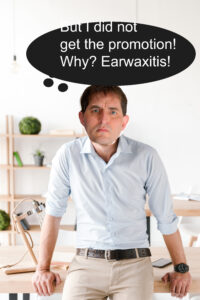
wax buildup. Over time people afflicted with earwaxitis are suddenly caught off balance as the buildup of the wax in their ears causes them embarrassing and sudden tilts of the head.
Voiceover: Earwaxitis can strike at any time, without warning, and that is why medical professionals recommend patients with earwaxitis try waxbegone. Just apply waxbegone liberally with the applicator and Wipe on, wipe off and presto! No more ear wax build ups.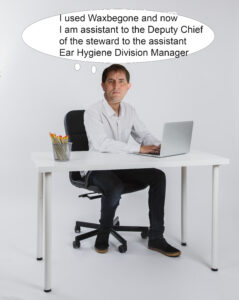
“One night Arnold took me to a really fancy restaurant and I was sure he was going to propose to me.

After dessert I could see in his eyes he was about to pop the question when a horrible thing happened.”
 “But then a friend told me about Waxbegone. Six weeks later, Arnold recovered from the incident and asked me out….and then, thanks to Waxbegone…”
“But then a friend told me about Waxbegone. Six weeks later, Arnold recovered from the incident and asked me out….and then, thanks to Waxbegone…”
“Thanks, Waxbegone!” Then, of course, there are the usual disclaimers and warnings when a stentorian voice interrupts the gaiety of the people who have overcome their affliction. Voiceover: Do not use WAXBEGONE if you are allergic to WAXBEGONE. [how would you know that?], use hearing aids, bathe or shower, use headphones, or have ridden In a car in the last week.
Then, of course, there are the usual disclaimers and warnings when a stentorian voice interrupts the gaiety of the people who have overcome their affliction. Voiceover: Do not use WAXBEGONE if you are allergic to WAXBEGONE. [how would you know that?], use hearing aids, bathe or shower, use headphones, or have ridden In a car in the last week.
 Voiceover: Side effects of WAXBEGONE include vomiting, hair loss, deafness, alternating bouts of constipation and diarrhea, temporary paralysis of the jaw, and inflamed eardrums, bipolarism, and advanced senility.[/caption] I get so scared about the side effects that the affliction does not seem so bad.
Voiceover: Side effects of WAXBEGONE include vomiting, hair loss, deafness, alternating bouts of constipation and diarrhea, temporary paralysis of the jaw, and inflamed eardrums, bipolarism, and advanced senility.[/caption] I get so scared about the side effects that the affliction does not seem so bad.
Then there are those ads that feature a cure for a condition I never heard of. A woman appears and claims she suffers from high levels of HUY2.

“My doctor told me that I had high levels of HUY2. Mine were 600 buds. Normal levels are 300 or less. I tried weight lifting and needle point, as well as whirly dervishing.

And I tried a variety of medicines but still my HUY2 numbers remained high. Fortunately I accompanied my husband on a business trip to Mongolia, and I discovered that Mongolian doctors had lowered the levels of its HUY2 citizens by administering a compound made from a mixture of the oils from a Mongolian Thistle and Siberian Pea Shrub and the roe from an Amur Pike.
and I discovered that Mongolian doctors had lowered the levels of its HUY2 citizens by administering a compound made from a mixture of the oils from a Mongolian Thistle and Siberian Pea Shrub and the roe from an Amur Pike.

Mongolian physicians have shared this formula with American doctors who have packaged it in capsule form known as Muk HOMZ.

Now my HUY2 levels are where they should be, thanks to HOMZ.  I can travel wherever I wish without fear of my HUY2 levels rising too high. Be it ever so humble, there is no place like HOMZ.
I can travel wherever I wish without fear of my HUY2 levels rising too high. Be it ever so humble, there is no place like HOMZ.
 Voiceover: Consult your doctor before taking HOMZ. Do not take HOMZ if you have high levels of HUY, or if you have ever traveled overseas. HOMZ in children has in some cases eliminated bone growth and can result in lower SAT scores. Side effects of HOMZ include, but not limited to, low HUY@ levels, intermediate blindness, a desire to climb MT. Everest,, swelling of the nose, indigestion, sudden onset of projectile vomiting, and severe memory loss. Before taking HOM be certain you are not allergic to the following ingredients: 我喜歡吃香蕉
Voiceover: Consult your doctor before taking HOMZ. Do not take HOMZ if you have high levels of HUY, or if you have ever traveled overseas. HOMZ in children has in some cases eliminated bone growth and can result in lower SAT scores. Side effects of HOMZ include, but not limited to, low HUY@ levels, intermediate blindness, a desire to climb MT. Everest,, swelling of the nose, indigestion, sudden onset of projectile vomiting, and severe memory loss. Before taking HOM be certain you are not allergic to the following ingredients: 我喜歡吃香蕉
A tactic which helps lawyers for drug companies to avoid lawsuits includes the advice to “See your doctor before taking……(whatever drug du jour.)” One positive upshot of all this drug advertising is that more people do visit their physicians. Statistics tell us that this is especially true of men. Other stats indicate that doctors took patients more seriously if they, the patients, mentioned a drug. I would like to know what my HUY2 levels are and what they are.
Developing a pill that treats a condition that most people consider just a minor inconvenience reminds me of the novel Brave New World by Aldous Huxley. In order to maintain control of the society, the power brokers provide a drug, Soma, to anyone who becomes sad or upset or questions the leaders’ decisions. Soma provides immediate happiness. Death in the family, failed romance, paper cut, all anguish is quickly remedied by popping a Soma pill.
Here’s an ad for a condition that we all deal with on a daily basis.

Voiceover: Everyone has visits by the Sandman at night, and people wake up with their eyelids almost sticking together. Normally this is no big problem for most people, but for some the condition gets worse during the day.

“It happens when I least expect it. My eyelids suddenly fill with the stuff that Mr. Sandman delivers at night.  I feel embarrassed and lost at work, as if I had suddenly been blindfolded.
I feel embarrassed and lost at work, as if I had suddenly been blindfolded.
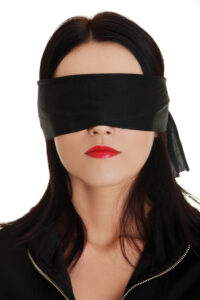 I can’t see and have to visit the rest room to wash it out.. This is how much I washed out of my eyes that workday.”
I can’t see and have to visit the rest room to wash it out.. This is how much I washed out of my eyes that workday.”
 Voiceover:The medical term for this condition is Sandosis. Fortunately researchers at the Dephonic institute have found a solution: Bxyomik, a small pill you can take when you feel the warning signs of Sandosis.
Voiceover:The medical term for this condition is Sandosis. Fortunately researchers at the Dephonic institute have found a solution: Bxyomik, a small pill you can take when you feel the warning signs of Sandosis.  “I am happy to take Bxyomik, and I am free to go anywhere without worry.”
“I am happy to take Bxyomik, and I am free to go anywhere without worry.”
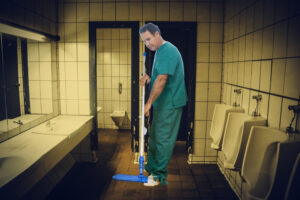 “I clean the bathrooms at the factory here. I almost got fired because my boss thought I was sleeping on the job and dropping things, but I started taking Sandosis and that doesn’t happen any more. He’s even promoted me to the job of cleaning the bathrooms of the executive offices.”
“I clean the bathrooms at the factory here. I almost got fired because my boss thought I was sleeping on the job and dropping things, but I started taking Sandosis and that doesn’t happen any more. He’s even promoted me to the job of cleaning the bathrooms of the executive offices.”
 Voice over Do not take Sandosis if you are allergic to sand, have a history of intermittent blinking, drink more water than beer, have ever visited the Maldives or have relatives that suffer from Sandosis, or if you have ever slept on your left side. Side effects include sleepwalking, insomnia, bad chewing habits, permanent blindness, glued eyelids and death, sudden onset of diarrhea. If any of these conditions occur, consult your doctor immediately.
Voice over Do not take Sandosis if you are allergic to sand, have a history of intermittent blinking, drink more water than beer, have ever visited the Maldives or have relatives that suffer from Sandosis, or if you have ever slept on your left side. Side effects include sleepwalking, insomnia, bad chewing habits, permanent blindness, glued eyelids and death, sudden onset of diarrhea. If any of these conditions occur, consult your doctor immediately.
Many drug ads use the threat of social outcasting to sell their product.
“I attended a conference and sweated throughout the meeting because my stomach growled. I thought the gods could hear the thunder emanating from my body.”
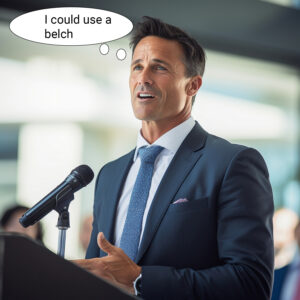 Voiceover: Joe is not the only person who suffered from Intestinal Thunder. Millions of people every day are afflicted with a Noisy Tummy and often find it difficult to concentrate on the job at hand. But now there is Bellyotinen, a small tablet you can take whenever you feel your stomach rumbling like a summer thunderstorm.
Voiceover: Joe is not the only person who suffered from Intestinal Thunder. Millions of people every day are afflicted with a Noisy Tummy and often find it difficult to concentrate on the job at hand. But now there is Bellyotinen, a small tablet you can take whenever you feel your stomach rumbling like a summer thunderstorm.
IT ( Intestinal Thunder) happens to everyone.
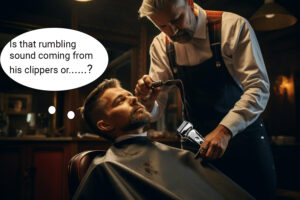 “I used to get so embarrassed when I would be cutting a good customer’s hair, and suddenly my growling would begin. First it was low and not so easily heard, but then it would get louder and louder. There was nothing I could do.
“I used to get so embarrassed when I would be cutting a good customer’s hair, and suddenly my growling would begin. First it was low and not so easily heard, but then it would get louder and louder. There was nothing I could do.
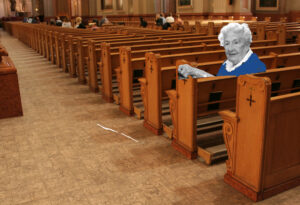 “When I would go to church on Sunday I would find myself the only person in the pew. Everyone knew about my loud growling stomach. It was so embarrassing.”
“When I would go to church on Sunday I would find myself the only person in the pew. Everyone knew about my loud growling stomach. It was so embarrassing.”
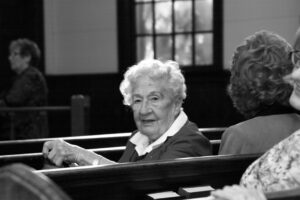 “But now I take Bellyotinen and people like Elvira here sit next to me…Course Elvira is deaf.”
“But now I take Bellyotinen and people like Elvira here sit next to me…Course Elvira is deaf.”
Voiceover: Do not take Bellyotinen if you have bleeding ulcers, athlete’s foot, gall bladder removed or have eaten lettuce within the last year. Side effects include hypochondria, hallucinations, disorientation, having suicidal thoughts, an inability to identify friends or relatives, and an intense desire to visit the Capuchin Catacombs in Sicily. If any of these reactions to Bellyotinen occur, consult your doctor immediately.
Many of the drug ads appeal to our need to belong to groups, social animals that we are. Unless we correct our rare condition that alienates us from the rest of the human race we are lepers, ostrasized and exiled. Like this ad.
 “The few friends that I have want me to go to the beach with them, but I always have an excuse not to go.” Voiceover: Marlene is not the only person that suffers from olfactpodiatism….smelly feet. Doctors do not know why sufferers from abnormally offensive smelly feet develop the condition, but they do know how to treat it successfully. [/caption]
“The few friends that I have want me to go to the beach with them, but I always have an excuse not to go.” Voiceover: Marlene is not the only person that suffers from olfactpodiatism….smelly feet. Doctors do not know why sufferers from abnormally offensive smelly feet develop the condition, but they do know how to treat it successfully. [/caption]
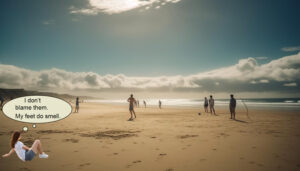
Many ointments and salves promise relief, but most do not work. But now we have a solution to this difficult problem….Vgkyz. Vgkyz is a long-lasting capsule that olfactpodiatism patients take once in the morning to remove the bacteria that causes smelly feet, and it lasts for twenty-four hours!
“Vgkyz is the first pill I take when I wake up in the morning, and I am secure and confident that I won’t be offending anyone’s nostrils all day!”
 Voiceover: Don’t alienate your friends and family by offending their olfactory system. If you suffer from olfactpodiatism, ask your doctor about Vgkyz. You’ll be glad you did.
Voiceover: Don’t alienate your friends and family by offending their olfactory system. If you suffer from olfactpodiatism, ask your doctor about Vgkyz. You’ll be glad you did.
Do not take Vgkyz if you are pregnant, plan to be pregnant, have a boyfriend, or plan to visit Canada in the next year—Side effects include toenail prolongation, hammer toes, slurred speech, and the need to urinate every quarter of an hour.

As bad as these ads are, I still do not mind commercials that much. There are those new ads featuring products only talked about in adolescent boys’ locker rooms—maybe girls’ locker rooms also. Even as I watch and listen, I know that the car the ads are parading up the Matterhorn I will never buy let alone drive to the top of a mountain. I will not assault my liver or kidneys by swallowing a pill to treat ear hair. Commercials give me time to ponder life or think about the show I am watching—and try to understand the plot: why did the uncle burn the will of his grandfather? Oh, he married the ex-wife of the uncle ….whose uncle? Or how come the villain fired 60 shots at the hero with an AR 15 and missed, but the hero fired one shot from a derringer and felled the villain? The commercials give me time to pause and reflect on humankind’s nature. As the Stage Manager says in Our Town by Thornton Wilder, “wherever you come near the human race there’s layers and layers of nonsense!”
In Aldous Huxley’s novel, Brave New World, no one is allowed to be miserable for even a second. No matter what the affliction, physical or mental, people are always happy, because when they fell the doldrums begin to shadow their souls, they pop Soma, a pill that makes them instantly happy…but it is.a childlike happiness that eventually leads to a dystopian, bleak future.
At other times I wonder if someone will plug a drug that will allow me to mentally bypass commercials entirely. Probably not. Madison Avenue seems to have the jump on all of us. Thus it always has been….well, maybe not.
Remember the television commercials of yore which pushed this drug?

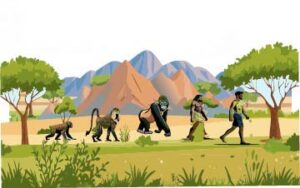




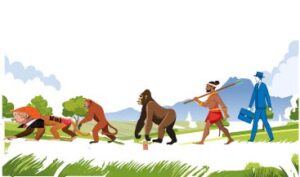


 To get there, we needed to climb two mountains. It was always a sweaty exercise, carrying our Adirondack packs, but, when we struggled to the top of one of those peaks, we knelt down beside a small stream and we could see our breaths as we sipped the icy cold water.
To get there, we needed to climb two mountains. It was always a sweaty exercise, carrying our Adirondack packs, but, when we struggled to the top of one of those peaks, we knelt down beside a small stream and we could see our breaths as we sipped the icy cold water.  We would camp near a wooden lean-to, make a fire, and take a well earned nap in the grass and later watch the loons do their crazy routines. The challenge and the reward made that walk special. When I was with my Dad…everything was special.
We would camp near a wooden lean-to, make a fire, and take a well earned nap in the grass and later watch the loons do their crazy routines. The challenge and the reward made that walk special. When I was with my Dad…everything was special.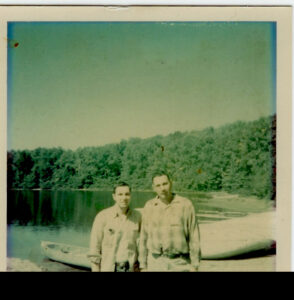
 As always, Mike and Jim and I separated on the river, and I found myself alone under the big Madonna blue sky. Two banks of desert grass and sage brush guided the pool I was fishing I looked upstream and was tempted to fish a pool that seemed promising. I fished upstream casting a parachute Adams fly, when I arrived at a small canyon.
As always, Mike and Jim and I separated on the river, and I found myself alone under the big Madonna blue sky. Two banks of desert grass and sage brush guided the pool I was fishing I looked upstream and was tempted to fish a pool that seemed promising. I fished upstream casting a parachute Adams fly, when I arrived at a small canyon. The river narrowed and deepened and the water would be over my head. I stepped out of the Madison, shook some stream debris off my wading boots and began the hike along the river. A trail parallel to the river took me up to the top of the canyon wall and through a small forest of Aspen and Cottonwood trees.
The river narrowed and deepened and the water would be over my head. I stepped out of the Madison, shook some stream debris off my wading boots and began the hike along the river. A trail parallel to the river took me up to the top of the canyon wall and through a small forest of Aspen and Cottonwood trees.
 reminding me of my trespassing as they flittered from Ponderosa Pine to Ponderosa Pine. Magpies judged me from their perches in the branches of a Larch.
reminding me of my trespassing as they flittered from Ponderosa Pine to Ponderosa Pine. Magpies judged me from their perches in the branches of a Larch.
 The trail ended in a downward slope, and I walked down to the stream and stood in the middle of the Madison again. There was no one in my range of vision upstream or downstream. I was alone, silent, and happy. I made a few casts and looked forward to my return walk. Nature can refresh the soul.
The trail ended in a downward slope, and I walked down to the stream and stood in the middle of the Madison again. There was no one in my range of vision upstream or downstream. I was alone, silent, and happy. I made a few casts and looked forward to my return walk. Nature can refresh the soul.
 Mike showed me one of his preferred flyfishing haunts– Loyalsock Creek in Sullivan and Lycoming Counties. We would fish the Catch and Release Only section, gearing up and walking to what became my favorite fishing hole, “the confluence.”
Mike showed me one of his preferred flyfishing haunts– Loyalsock Creek in Sullivan and Lycoming Counties. We would fish the Catch and Release Only section, gearing up and walking to what became my favorite fishing hole, “the confluence.” Fly rod in hand, expectations racing through my veins, I enjoyed the stroll upstream; birds showing the way, the occasional deer looking up from her grazing to frown at us disturbing her breakfast. There were areas on the trail
Fly rod in hand, expectations racing through my veins, I enjoyed the stroll upstream; birds showing the way, the occasional deer looking up from her grazing to frown at us disturbing her breakfast. There were areas on the trail that were carpeted with ground lichen which would soften my steps, and on some trips the Canadensis were flowering.
that were carpeted with ground lichen which would soften my steps, and on some trips the Canadensis were flowering.  The experience surpassed any Disney nature film. Sometimes we stopped fishing after dark and found our way back in pitch blackness. Even that was a thrill. As Iremoved my flyfishing gear and got back in the car, I was always saddened at leaving the
The experience surpassed any Disney nature film. Sometimes we stopped fishing after dark and found our way back in pitch blackness. Even that was a thrill. As Iremoved my flyfishing gear and got back in the car, I was always saddened at leaving the
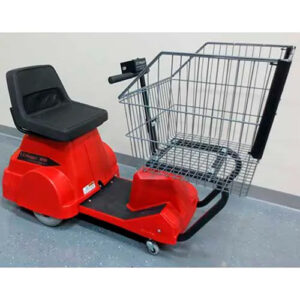
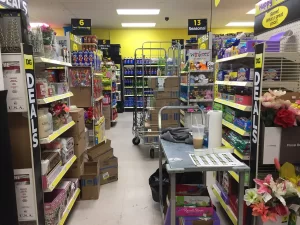
 and I calculated they would be doing so until the next millennia, so I had to get off the major highway and take the backroads through other sections of the store.
and I calculated they would be doing so until the next millennia, so I had to get off the major highway and take the backroads through other sections of the store. in the subsection which had racks of bras and panties and other garments which I could not identify. Now what? It would only be a little while until I would be discovered. In an all too short amount of time, two women, in their thirties, walked into the aisle I was in, unmentionables on both sides of me. They were engaged in a conversation about buying something for their daughters. I prayed to Saint Anthony, the Patron Saint of Lost Causes, to strike those women blind or make me invisible.
in the subsection which had racks of bras and panties and other garments which I could not identify. Now what? It would only be a little while until I would be discovered. In an all too short amount of time, two women, in their thirties, walked into the aisle I was in, unmentionables on both sides of me. They were engaged in a conversation about buying something for their daughters. I prayed to Saint Anthony, the Patron Saint of Lost Causes, to strike those women blind or make me invisible.  We just stared at each other for about twenty light years, their mouths closed tightly, and without saying a word they walked down the aisle farthest from me toward the Household Section.
We just stared at each other for about twenty light years, their mouths closed tightly, and without saying a word they walked down the aisle farthest from me toward the Household Section.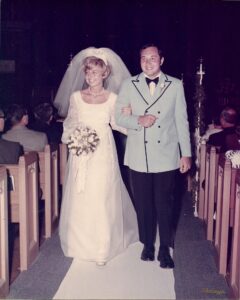
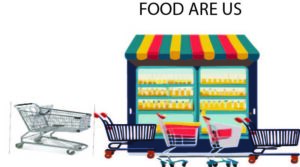

 They are each given a phone number for tech support, and each contestant, after twenty minutes on hold, converses with a technician whose English is spotty.
They are each given a phone number for tech support, and each contestant, after twenty minutes on hold, converses with a technician whose English is spotty. 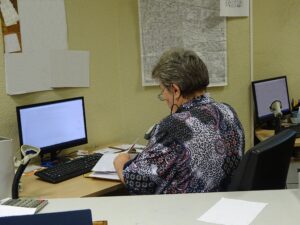 The Olympian who is able to resolve the problem in the shortest time wins. Patience is crucial to be successful in this event. That is why many refer to it as “The Patience Challenge.”
The Olympian who is able to resolve the problem in the shortest time wins. Patience is crucial to be successful in this event. That is why many refer to it as “The Patience Challenge.”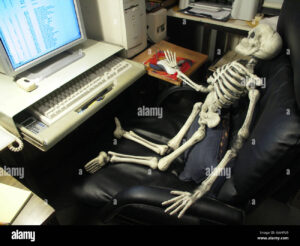


 Time and neatness of folding are scored. Archibald Twitsome-Eekberry from England won the gold in this event. Reporters at Heathrow Airport asked (now a Sir) Twitsome-Eekberry about his technique. “Practice, quite really, is the secret. My missus, Evelyn Twitsome-Eekberry always complained that she received the paper from my hands in quite a disarray. Of course, that wouldn’t do. So naturally I had to develop a strategy to create a neater transference; I set my thought-jousting to it, and the result was the Ipswich Slap…a sharp karate-like chop in the middle of the Guardian that does the trick. So there it is.”
Time and neatness of folding are scored. Archibald Twitsome-Eekberry from England won the gold in this event. Reporters at Heathrow Airport asked (now a Sir) Twitsome-Eekberry about his technique. “Practice, quite really, is the secret. My missus, Evelyn Twitsome-Eekberry always complained that she received the paper from my hands in quite a disarray. Of course, that wouldn’t do. So naturally I had to develop a strategy to create a neater transference; I set my thought-jousting to it, and the result was the Ipswich Slap…a sharp karate-like chop in the middle of the Guardian that does the trick. So there it is.”
 Points are awarded for speed of completion and accuracy. Aiden Corningware and his wife Esther Corningware from Jersey City, New Jersey, United States, were awarded the gold. In a later interview with Shopper’s Guide magazine, Aiden confided. “It was brutal out there. The machine kept on telling me to remove my credit card and then asked me to insert my credit card. This happened five times….right honey? But once I realized I had the card upside down it worked, and we were in a groove. I heard other couples yelling at their machines. Like the couple next to us kept screaming at the machine, ‘I put the item in the freaking bag!!!’
Points are awarded for speed of completion and accuracy. Aiden Corningware and his wife Esther Corningware from Jersey City, New Jersey, United States, were awarded the gold. In a later interview with Shopper’s Guide magazine, Aiden confided. “It was brutal out there. The machine kept on telling me to remove my credit card and then asked me to insert my credit card. This happened five times….right honey? But once I realized I had the card upside down it worked, and we were in a groove. I heard other couples yelling at their machines. Like the couple next to us kept screaming at the machine, ‘I put the item in the freaking bag!!!’  One couple took the honey dew melon in their shopping cart and smashed it against the monitor yelling ‘The freaking honey dew melon has no bar code!’ I guess we had an advantage because in the states we are more used to Self-Checkouts. But this trophy goes on our mantle…if we had a mantle. USA!! USA!! USA!!”
One couple took the honey dew melon in their shopping cart and smashed it against the monitor yelling ‘The freaking honey dew melon has no bar code!’ I guess we had an advantage because in the states we are more used to Self-Checkouts. But this trophy goes on our mantle…if we had a mantle. USA!! USA!! USA!!”
 A favorite to win gold in this event was Agim Fatmir from Albania, but she lost time when she mistook her cell phone for the tv remote. Mateo and Martina Manuel from Spain were favored win the gold in this event. They won a gold medal in the last two Olympics and a silver medal in the 2012 Olympics, but in 2024 Martina inadvertently held her tv remote upside down, and lost points for both speed and accuracy.
A favorite to win gold in this event was Agim Fatmir from Albania, but she lost time when she mistook her cell phone for the tv remote. Mateo and Martina Manuel from Spain were favored win the gold in this event. They won a gold medal in the last two Olympics and a silver medal in the 2012 Olympics, but in 2024 Martina inadvertently held her tv remote upside down, and lost points for both speed and accuracy.
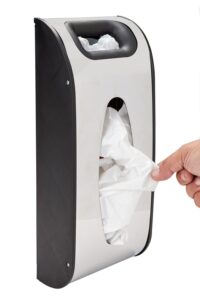 They must first separate the two sides of the crinkly bag and then open it up wide enough to deposit the products. Winning this event for the first time was Julieto Diego from Uruguay. Reporters greeted Ms. Diego at the Montevideo Airport. “So happy to see you all. I practiced so hard, going every day to different grocery stores and grabbing plastic bags and using my thumb and forefinger to slip two sides apart. Some were more clingy than others so I would spit on my thumb and forefinger and rub the two sides apart.
They must first separate the two sides of the crinkly bag and then open it up wide enough to deposit the products. Winning this event for the first time was Julieto Diego from Uruguay. Reporters greeted Ms. Diego at the Montevideo Airport. “So happy to see you all. I practiced so hard, going every day to different grocery stores and grabbing plastic bags and using my thumb and forefinger to slip two sides apart. Some were more clingy than others so I would spit on my thumb and forefinger and rub the two sides apart. 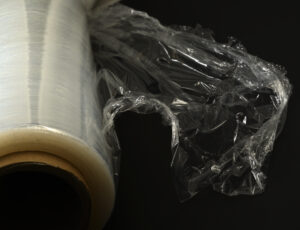 Best fruits and vegetables were rutabaga and gooseberries to practice, because they were most challenging. Would you like some gooseberries and rutabaga? I have plenty from practice.”
Best fruits and vegetables were rutabaga and gooseberries to practice, because they were most challenging. Would you like some gooseberries and rutabaga? I have plenty from practice.” 0
0 Participants must submit to a physical examination by a doctor, and, simultaneously, try to smuggle magazines from the waiting room. The magazines are weighted with more points awarded for stealing Mademoiselle, Unpopular Mechanics, and fewer points for Scholastic Magazine and Golfer’s Weekly. First place was awarded to Aapo Aapeli from Finland who scored a record three hundred points for smuggling seven large magazines and a children’s book, Mary Has a Severe Ear Infection.
Participants must submit to a physical examination by a doctor, and, simultaneously, try to smuggle magazines from the waiting room. The magazines are weighted with more points awarded for stealing Mademoiselle, Unpopular Mechanics, and fewer points for Scholastic Magazine and Golfer’s Weekly. First place was awarded to Aapo Aapeli from Finland who scored a record three hundred points for smuggling seven large magazines and a children’s book, Mary Has a Severe Ear Infection. 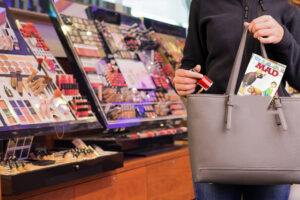 Aapo credited her Finnish overcoat design for her success.
Aapo credited her Finnish overcoat design for her success.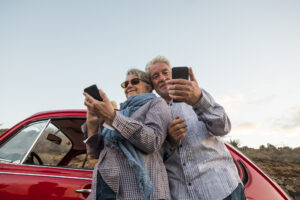 Speed of reaching the destinations with the fewest errors in reading the GPS is a major assessment. Points are subtracted for each “Recalculating” notification by the GPS. Chae-Won of Korea won the gold. Heidi and Thomas Butler, representing Canada, were disqualified for using a paper road map.
Speed of reaching the destinations with the fewest errors in reading the GPS is a major assessment. Points are subtracted for each “Recalculating” notification by the GPS. Chae-Won of Korea won the gold. Heidi and Thomas Butler, representing Canada, were disqualified for using a paper road map. Sadly Oscar Van Buten and his wife Mathilda, representing Germany, have still not returned from the event, and Rescue and Retrieve parties have been assigned to find the couple.
Sadly Oscar Van Buten and his wife Mathilda, representing Germany, have still not returned from the event, and Rescue and Retrieve parties have been assigned to find the couple.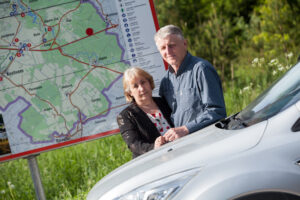
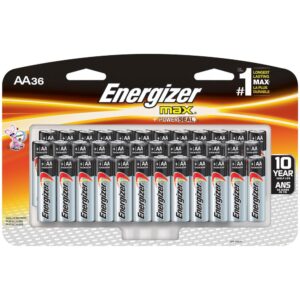
 Once again, paramedics needed the Jaws of Life in order to release Pakistan’s Shikah Thakur’s hand. He is recuperating at a local hospital.
Once again, paramedics needed the Jaws of Life in order to release Pakistan’s Shikah Thakur’s hand. He is recuperating at a local hospital. 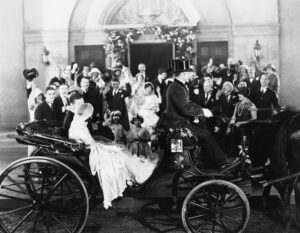 Couples will not only be judged by how long they stay the goodbye, but how much food they make the visitors depart with. Some members of the World Real Olympic Committee are debating whether to make this suggestion another event or part of the Family Goodbye Biathalon. In any case, it will be an unofficial event and not count toward a nation’s total medal tally
Couples will not only be judged by how long they stay the goodbye, but how much food they make the visitors depart with. Some members of the World Real Olympic Committee are debating whether to make this suggestion another event or part of the Family Goodbye Biathalon. In any case, it will be an unofficial event and not count toward a nation’s total medal tally .
.
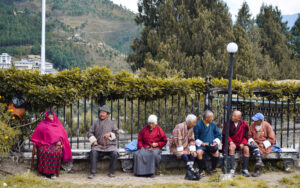 The person who is the last to discuss his/her infirmities wins. Grace Harper took the gold, the last to discuss her latest physical difficulties and operations at 2 minutes, 14 seconds, just 2 seconds off the world record.
The person who is the last to discuss his/her infirmities wins. Grace Harper took the gold, the last to discuss her latest physical difficulties and operations at 2 minutes, 14 seconds, just 2 seconds off the world record.
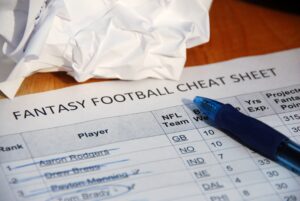

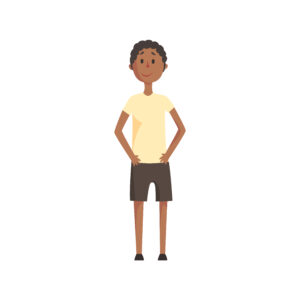



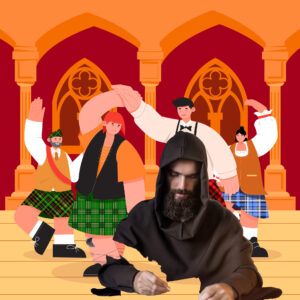
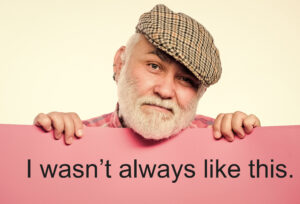
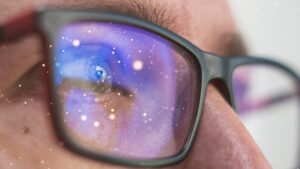



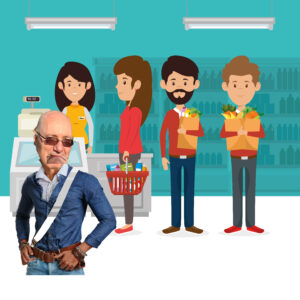 Old deaf man arrested for indecent exposure in supermarket.” I was able to help Polley check out using one hand, thus avoiding mooning all the staff and customers at the supermarket. We’ll not visit that supermarket for a little while.
Old deaf man arrested for indecent exposure in supermarket.” I was able to help Polley check out using one hand, thus avoiding mooning all the staff and customers at the supermarket. We’ll not visit that supermarket for a little while.
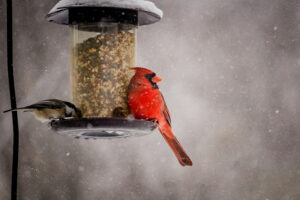

 from my hand, in a different way. The things that were important when I was twenty-five are less important now. I enjoy things more because my expectations are not grandiose.
from my hand, in a different way. The things that were important when I was twenty-five are less important now. I enjoy things more because my expectations are not grandiose.  For example, each moment I sit with Polley watching a British crime drama on a Saturday night is a..a delight that I cherish. I see what was previously unseen to me. Perspective reminds me of my gains, and that is what I hang on to….greater clarity.
For example, each moment I sit with Polley watching a British crime drama on a Saturday night is a..a delight that I cherish. I see what was previously unseen to me. Perspective reminds me of my gains, and that is what I hang on to….greater clarity.

 Barry does not feel so good. He should try Ventrix and in five minutes Barry is back dancing!” Ventrix.Your choice when you are not feeling so good. Go figure. What was the affliction?
Barry does not feel so good. He should try Ventrix and in five minutes Barry is back dancing!” Ventrix.Your choice when you are not feeling so good. Go figure. What was the affliction?






 “But then a friend told me about Waxbegone. Six weeks later, Arnold recovered from the incident and asked me out….and then, thanks to Waxbegone…”
“But then a friend told me about Waxbegone. Six weeks later, Arnold recovered from the incident and asked me out….and then, thanks to Waxbegone…” 
 Voiceover: Side effects of WAXBEGONE include vomiting, hair loss, deafness, alternating bouts of constipation and diarrhea, temporary paralysis of the jaw, and inflamed eardrums, bipolarism, and advanced senility.[/caption] I get so scared about the side effects that the affliction does not seem so bad.
Voiceover: Side effects of WAXBEGONE include vomiting, hair loss, deafness, alternating bouts of constipation and diarrhea, temporary paralysis of the jaw, and inflamed eardrums, bipolarism, and advanced senility.[/caption] I get so scared about the side effects that the affliction does not seem so bad.

 and I discovered that Mongolian doctors had lowered the levels of its HUY2 citizens by administering a compound made from a mixture of the oils from a Mongolian Thistle and Siberian Pea Shrub and the roe from an Amur Pike.
and I discovered that Mongolian doctors had lowered the levels of its HUY2 citizens by administering a compound made from a mixture of the oils from a Mongolian Thistle and Siberian Pea Shrub and the roe from an Amur Pike.

 I can travel wherever I wish without fear of my HUY2 levels rising too high. Be it ever so humble, there is no place like HOMZ.
I can travel wherever I wish without fear of my HUY2 levels rising too high. Be it ever so humble, there is no place like HOMZ. Voiceover: Consult your doctor before taking HOMZ. Do not take HOMZ if you have high levels of HUY, or if you have ever traveled overseas. HOMZ in children has in some cases eliminated bone growth and can result in lower SAT scores. Side effects of HOMZ include, but not limited to, low HUY@ levels, intermediate blindness, a desire to climb MT. Everest,, swelling of the nose, indigestion, sudden onset of projectile vomiting, and severe memory loss. Before taking HOM be certain you are not allergic to the following ingredients: 我喜歡吃香蕉
Voiceover: Consult your doctor before taking HOMZ. Do not take HOMZ if you have high levels of HUY, or if you have ever traveled overseas. HOMZ in children has in some cases eliminated bone growth and can result in lower SAT scores. Side effects of HOMZ include, but not limited to, low HUY@ levels, intermediate blindness, a desire to climb MT. Everest,, swelling of the nose, indigestion, sudden onset of projectile vomiting, and severe memory loss. Before taking HOM be certain you are not allergic to the following ingredients: 我喜歡吃香蕉

 I feel embarrassed and lost at work, as if I had suddenly been blindfolded.
I feel embarrassed and lost at work, as if I had suddenly been blindfolded. I can’t see and have to visit the rest room to wash it out.. This is how much I washed out of my eyes that workday.”
I can’t see and have to visit the rest room to wash it out.. This is how much I washed out of my eyes that workday.” Voiceover:The medical term for this condition is Sandosis. Fortunately researchers at the Dephonic institute have found a solution: Bxyomik, a small pill you can take when you feel the warning signs of Sandosis.
Voiceover:The medical term for this condition is Sandosis. Fortunately researchers at the Dephonic institute have found a solution: Bxyomik, a small pill you can take when you feel the warning signs of Sandosis.  “I am happy to take Bxyomik, and I am free to go anywhere without worry.”
“I am happy to take Bxyomik, and I am free to go anywhere without worry.” “I clean the bathrooms at the factory here. I almost got fired because my boss thought I was sleeping on the job and dropping things, but I started taking Sandosis and that doesn’t happen any more. He’s even promoted me to the job of cleaning the bathrooms of the executive offices.”
“I clean the bathrooms at the factory here. I almost got fired because my boss thought I was sleeping on the job and dropping things, but I started taking Sandosis and that doesn’t happen any more. He’s even promoted me to the job of cleaning the bathrooms of the executive offices.” Voice over Do not take Sandosis if you are allergic to sand, have a history of intermittent blinking, drink more water than beer, have ever visited the Maldives or have relatives that suffer from Sandosis, or if you have ever slept on your left side. Side effects include sleepwalking, insomnia, bad chewing habits, permanent blindness, glued eyelids and death, sudden onset of diarrhea. If any of these conditions occur, consult your doctor immediately.
Voice over Do not take Sandosis if you are allergic to sand, have a history of intermittent blinking, drink more water than beer, have ever visited the Maldives or have relatives that suffer from Sandosis, or if you have ever slept on your left side. Side effects include sleepwalking, insomnia, bad chewing habits, permanent blindness, glued eyelids and death, sudden onset of diarrhea. If any of these conditions occur, consult your doctor immediately.
 Voiceover: Joe is not the only person who suffered from Intestinal Thunder. Millions of people every day are afflicted with a Noisy Tummy and often find it difficult to concentrate on the job at hand. But now there is Bellyotinen, a small tablet you can take whenever you feel your stomach rumbling like a summer thunderstorm.
Voiceover: Joe is not the only person who suffered from Intestinal Thunder. Millions of people every day are afflicted with a Noisy Tummy and often find it difficult to concentrate on the job at hand. But now there is Bellyotinen, a small tablet you can take whenever you feel your stomach rumbling like a summer thunderstorm.  “I used to get so embarrassed when I would be cutting a good customer’s hair, and suddenly my growling would begin. First it was low and not so easily heard, but then it would get louder and louder. There was nothing I could do.
“I used to get so embarrassed when I would be cutting a good customer’s hair, and suddenly my growling would begin. First it was low and not so easily heard, but then it would get louder and louder. There was nothing I could do. “When I would go to church on Sunday I would find myself the only person in the pew. Everyone knew about my loud growling stomach. It was so embarrassing.”
“When I would go to church on Sunday I would find myself the only person in the pew. Everyone knew about my loud growling stomach. It was so embarrassing.” “But now I take Bellyotinen and people like Elvira here sit next to me…Course Elvira is deaf.”
“But now I take Bellyotinen and people like Elvira here sit next to me…Course Elvira is deaf.” “The few friends that I have want me to go to the beach with them, but I always have an excuse not to go.” Voiceover: Marlene is not the only person that suffers from olfactpodiatism….smelly feet. Doctors do not know why sufferers from abnormally offensive smelly feet develop the condition, but they do know how to treat it successfully. [/caption]
“The few friends that I have want me to go to the beach with them, but I always have an excuse not to go.” Voiceover: Marlene is not the only person that suffers from olfactpodiatism….smelly feet. Doctors do not know why sufferers from abnormally offensive smelly feet develop the condition, but they do know how to treat it successfully. [/caption]
 Voiceover: Don’t alienate your friends and family by offending their olfactory system. If you suffer from olfactpodiatism, ask your doctor about Vgkyz. You’ll be glad you did.
Voiceover: Don’t alienate your friends and family by offending their olfactory system. If you suffer from olfactpodiatism, ask your doctor about Vgkyz. You’ll be glad you did.



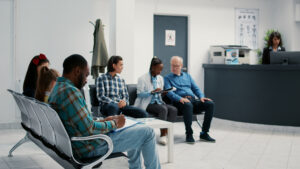


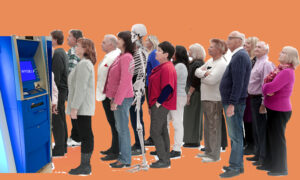

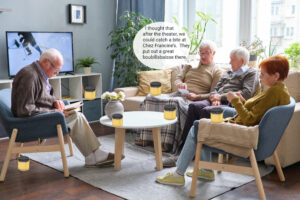
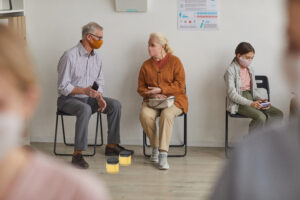 “Ma’am, I’m sure the lab will know whose is whose.” What can be more personal, and, surprisingly so impersonal at the same time?
“Ma’am, I’m sure the lab will know whose is whose.” What can be more personal, and, surprisingly so impersonal at the same time? 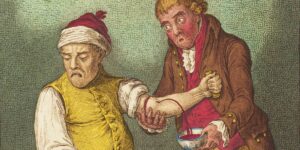

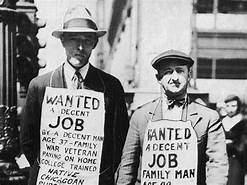




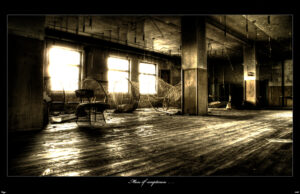
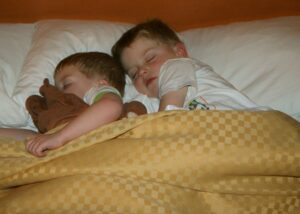





 We’ll killing the planet so a few greedy people can become even richer, Violence and crime are up. Kids are getting stupidly high on drugs and killing each other.”
We’ll killing the planet so a few greedy people can become even richer, Violence and crime are up. Kids are getting stupidly high on drugs and killing each other.”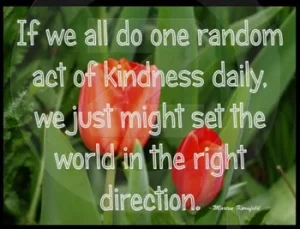
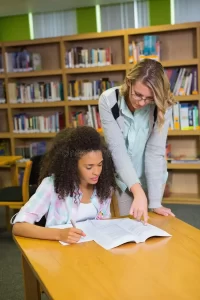

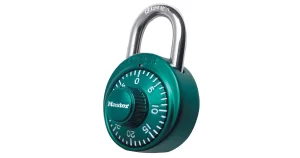

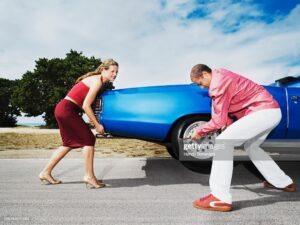
 you will not find the goodness of the world in the headlines or on the evening news. What we hear nightly are the bad things. Serial killings, demolishing storms, bankruptcies, corrupt politicians. Why the emphasis on evil? Because bad happenings sell. Bad news is big business. Many people thrive on hearing bad news, perhaps, just perhaps, because they survive their own plights by vicariously experiencing some other poor life form’s misfortune.
you will not find the goodness of the world in the headlines or on the evening news. What we hear nightly are the bad things. Serial killings, demolishing storms, bankruptcies, corrupt politicians. Why the emphasis on evil? Because bad happenings sell. Bad news is big business. Many people thrive on hearing bad news, perhaps, just perhaps, because they survive their own plights by vicariously experiencing some other poor life form’s misfortune.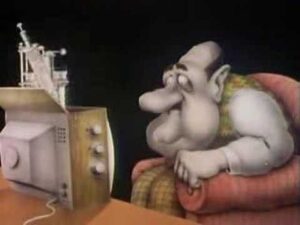 In any case, don’t expect to hear on national television: “Breaking news: Tomorrow will be a beautiful day, with mild temperatures and sunshine!” Or, “A family in Idaho helped a family from Tucson move into their new home.” OR Senator NiceGuy told the truth at a hearing.” Or “RV resurrected Ralph’s blog website.”
In any case, don’t expect to hear on national television: “Breaking news: Tomorrow will be a beautiful day, with mild temperatures and sunshine!” Or, “A family in Idaho helped a family from Tucson move into their new home.” OR Senator NiceGuy told the truth at a hearing.” Or “RV resurrected Ralph’s blog website.”

 and cough-splattered dirty white opaque windows that masked the riders, to lakes which so clearly mirrored the surrounding mountains and trees that one became disoriented as to which was real and which was the reflection.
and cough-splattered dirty white opaque windows that masked the riders, to lakes which so clearly mirrored the surrounding mountains and trees that one became disoriented as to which was real and which was the reflection.
 Even though Tupper Lake did not have the entertainment gravitas of Saranac Lake or the panache of Lake Placid, we enjoyed shopping in the IGA and having a breakfast of eggs, pancakes, hash browns, and corn beef hash at the Lumberjack restaurant.
Even though Tupper Lake did not have the entertainment gravitas of Saranac Lake or the panache of Lake Placid, we enjoyed shopping in the IGA and having a breakfast of eggs, pancakes, hash browns, and corn beef hash at the Lumberjack restaurant. 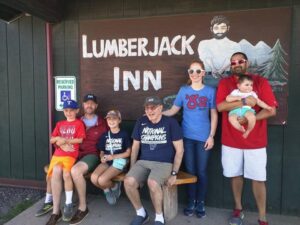 The locals were kind and helpful and pleasant in conversation. My brother Jimmy and I would swim in Little Wolf Pond and catch bullheads in the evening. Most of all, we inhaled the cool, crisp air that convinced me that I could overcome any challenge, any obstacle, any taunt hurled in my direction. If the air inspired my spirit, the green mountains thick with pine trees and cradling the deep, dark blue lakes and ponds, calmed my soul. The sky always seemed to be an ocean painted a Madonna blue, and puffy ivory white clouds always sailed that water. The big plus over Saranac Lake and Lake Placid was my father’s ability to afford staying in Tupper Lake.
The locals were kind and helpful and pleasant in conversation. My brother Jimmy and I would swim in Little Wolf Pond and catch bullheads in the evening. Most of all, we inhaled the cool, crisp air that convinced me that I could overcome any challenge, any obstacle, any taunt hurled in my direction. If the air inspired my spirit, the green mountains thick with pine trees and cradling the deep, dark blue lakes and ponds, calmed my soul. The sky always seemed to be an ocean painted a Madonna blue, and puffy ivory white clouds always sailed that water. The big plus over Saranac Lake and Lake Placid was my father’s ability to afford staying in Tupper Lake. He would rent a rustic cabin, usually one that looked like it was built with Lincoln Logs, with a small kitchenette so we could cook our meals. Our favorite rental was a three room (two bedrooms and a kitchen/living/dining room) white Cape Cod-like cabin with bright red shutters; a cabin nestled in a grove of white birch trees on Little Wolf Pond. Often the centerpieces of these meals were the fish we caught from our usual fishing spots, one of which was located on the Raquette River at the Settin’ Pole Dam.
He would rent a rustic cabin, usually one that looked like it was built with Lincoln Logs, with a small kitchenette so we could cook our meals. Our favorite rental was a three room (two bedrooms and a kitchen/living/dining room) white Cape Cod-like cabin with bright red shutters; a cabin nestled in a grove of white birch trees on Little Wolf Pond. Often the centerpieces of these meals were the fish we caught from our usual fishing spots, one of which was located on the Raquette River at the Settin’ Pole Dam.  The dam had three huge, whitish gray, concrete pillars that held the gates which controlled the flow of water into the river below. We climbed over the railing and strolled, fishing rod in hand, down the metal walkway to the middle pillar and cast into the white foaming water that gushed beneath us.
The dam had three huge, whitish gray, concrete pillars that held the gates which controlled the flow of water into the river below. We climbed over the railing and strolled, fishing rod in hand, down the metal walkway to the middle pillar and cast into the white foaming water that gushed beneath us. 



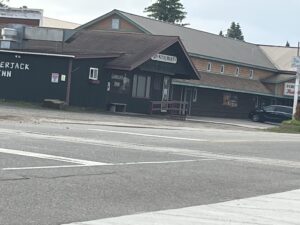
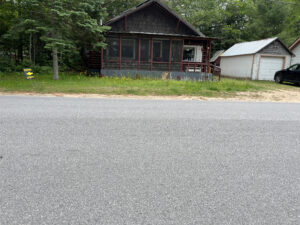
 I felt that same fence around my heart. I stared for a long while at the dam, the river, and the sky.
I felt that same fence around my heart. I stared for a long while at the dam, the river, and the sky. I can picture movements and facial expressions, smiles and frowns and laughs. I can think the memory. But visiting the past in space is not sufficient. Something is missing. I cannot feel the memory. I cannot feel in my body and soul the joys of my youth.
I can picture movements and facial expressions, smiles and frowns and laughs. I can think the memory. But visiting the past in space is not sufficient. Something is missing. I cannot feel the memory. I cannot feel in my body and soul the joys of my youth.